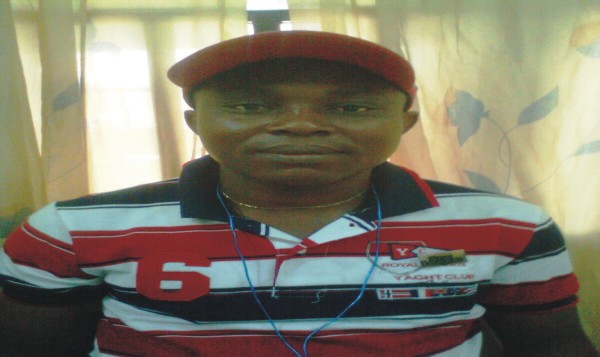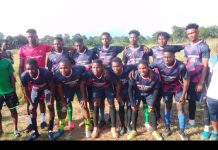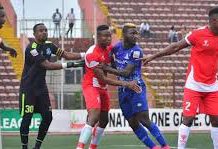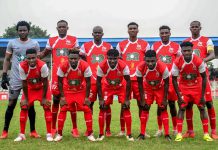Confederations Cup in Brazil; Festival of Nicknames
Super Eagles set to consolidate their position on top of their world cup qualifying group (F). Nickname’s have always been serious business in football and nowhere is that truer than Brazil. They have long been integral to Brazilian sporting culture, and with the country gearing up to host the Festival dos Campeões (Festival of Champions), this write up lifts the lid on some of the other colorful monikers due to grace the tournament those of competing teams Uruguay, Mexico, Italy, Spain, Japan, Nigeria, Tahiti and the hosts themselves.
True to form, Brazil boast a whole range of aliases, with A Seleção (‘Selection’ in Portuguese) the most familiar to fans around the world. The five-time world champions also go by Canarinhos (Canaries) and Auriverdes (Green and Gold), both terms inspired by the color of the team’s strip. Interestingly, Brazil have only worn yellow since the 1950s, having draped themselves in white until that color was banished for good in the wake of their painful defeat by Uruguay in the final of the 1950 FIFA World Cup™ on home soil.
Their South American rivals also owe their nickname to the hue of their shirts, Uruguay fans labelling their heroes La Celeste in recognition of their light blue uniforms a color worn since 1910 in a tribute to now defunct local outfit FC River Plate, one of the country’s first great clubs. The national side is likewise known as Los Charrúas, a moniker that references the Amerindian people who settled on land now belonging to Uruguay and Brazil in the 19th Century.
Over in Europe at around the same time, Victor Emmanuel II was busy helping to unify Italy, and he became the country’s first king in 1861. A member of the House of Savoy, whose livery colour is blue, he is the reason La Nazionale wear their particular shirts and why Cesare Prandelli’s troops are nicknamed Gli Azzurri (the Blues). Indeed, blue does not figure as one of the country’s official colours, the flag of Italy being made up of red, white and green.
So too is the flag of Mexico, but, unlike the Italians, the North American side opted to base their strip on that very same colour scheme and hence their nickname El Tricolor, which is often shortened to El Tri. Since green enjoys the upper hand over red and white in their uniforms, Mexico have gradually come to be known as La Verde as well, or even Los Ratones Verdes (Green mice) when their faithful supporters are a little less impressed with the team’s performances.
In a similar vein, the Super Eagles of Nigeria so called due to the country’s coat of arms found themselves rechristened the Super Chickens by certain critics after their disappointing start at the 2013 CAF Africa Cup of Nations. “I challenge my players to do better, to prove people wrong and get rid of this ridiculous name that’s been attached to a team that’s always been considered a powerhouse of African football,” commented Nigeria coach Stephen Keshi. The message clearly worked; as his side went on to win the competition, booking themselves a trip to the FIFA Confederations Cup Brazil 2013 in the process. It was not the first time that Nigeria had undergone a change of identity either. The national side was originally known as the Red Devils in the 1950s and became the Green Eagles following independence in 1960, before earning their ‘super’ sobriquet after winning the continental title in 1994.
Even more recently than that, Japan were handed their Samurai Blue alias on a plate by the Japan Football Association (JFA) just a few years ago. “We needed a nickname to support our team during the 2006 FIFA World Cup,” explained JFA communications officer Megumi Fujinoki. “So to choose a name, we put five options to a vote by the fans and they picked Samurai Blue.” The winning candidate, of course, harks back to the warriors who ruled feudal Japan for nearly 700 years.
The martial theme resonates in Tahiti as well, with the Toa Aito (Iron Warriors) defending the island’s honor on the pitch. Used separately, the words ‘toa’ and ‘aito’ also refer to a type of tree, more popularly known as the ‘filao’. Extremely common throughout French Polynesia, the wood of this tree is used to build ‘tiki’, carved sculptures designed to bring luck and the nickname of Tahiti’s beach soccer team (Tiki Toa).
Spain steer clear of any references to warriors, but La Furia Roja (Red Fury) hope to intimidate their rivals all the same. Studies carried out by psychologists specialising in sport have shown that the colour red communicates strength, aggression, confidence and balance all qualities that La Roja will be looking to employ as they chase the one title missing from their list of honours. They have a long way to go if they are to depose Brazil, however, as A Seleção reign supreme with a trio of FIFA Confederations Cup triumphs another record for the kings of the football nickname!
Ibenegbu Absent For Heartland,
Set For The Alter With Esom
Heartland attacking midfielder, Ikechukwu Ibenegbu was be available for his side’s mid-week Nigeria Professional Football League (NPFL) Match day 18 clash against Nasarawa United at the Dan Anyiam Stadium, Owerri.
The Nigerian playmaker picked a thigh injury in his side’s 1-3 loss at oriental foes, Enugu Rangers on Sunday at the Nnamdi Azikiwe Stadium, Enugu.
However, the midfield maestro is believed to have used the time-out to rest his leg as well as inform friends and well-wishers of his upcoming wedding to heart-throb, Lilian Esom on June 29 at the Blessed Sacrament Parish, Enugu.
“I wasn’t available for the game against Nasarawa United on Wednesday; I had a severe knock on my thigh towards the tail end of the match at Enugu Rangers in Enugu on Sunday.
“I ‘was asked to rest the leg to avoid worsening the injury. That’s why I was out of the encounter but I’ll be prayed for their victory. It has been tough in the past three matches Kris-crossing the nation without a point to show for it.
“We need the points badly to reassure the increasingly worried fans that we’re still in the race for the league shield.
“We’ve been thoroughly busy lately so I hope to use the little time on my hands to inform friends of my wedding slated for June 29 in Enugu.
“The lucky lady is no other person than Lilian Esom, a Mass Communications undergraduate of Ebonyi State University.
“I think I’ve grown in the round leather game and time is ripe to get a partner who will further help me to grow in my chosen career.
Together I’ll be a far better player both on and off the pitch,” said the former El-Kanemi Warriors playmaker to Trumpeta .
NPFL WEEK 18 RESULTS
Heartland — Nasarawa
Sunshine — Nembe City
El Kanemi — Rangers
Sharks — Enyimba
Bayelsa — Gombe Utd
ABS fc — Wolves
Akwa Utd — Kwara Utd
Wikki Tourist — Dolphins
Kano Pillars — Lobi Stars
3SC — Kaduna Utd
PROF. ONWULIRI CUP
SEMI’S 12/6/13
Ahiazu — Owerri
13/6/13
Okigwe — Amuzi
INTERNATIONAL FRIENDLIES
Spain 2 0 Rep. of Ireland
Ecuardor 1 1 Argentina
USA 2 0 Panama
Baba Ganaru urges League Management Committee to monitor activities of referees
The Kano Pillars coach has said that if a true champion will emerge at the end of the season, referees must do their best to remain above board
Kano Pillars coach, Baba Ganaru has advised the League authorities to monitor the activities of referees if a true champion will emerge at the end of the season.
Ganaru whose team is presently on top of the league table with 32 points noted that it is important the referees are checked because it will give every team the motivation to win anywhere they play instead of always believing that they must lose away games.
“We must be able to win matches irrespective of where we are playing. A team can travel from Port Harcourt to come and win in Kano if they have a better team and played better in that particular match,” Ganaru stated.
“But you find out that this is not always the case. Almost every team is complaining about officiating these days. And when these clubs are complaining, then something is wrong somewhere.
“It is not good that before a team leaves their base, they already know that they would lose. They have the belief that no matter what they do, the best they can get in that game would be a draw.
“I am not saying all referees are bad. We have very good referees, but in most cases it is the fault of the referees that they don’t give quality officiating.
“The cause of why they don’t give their best at all times should also be looked into.
“The first round of the League is about to come to an end. The second round is where the closed monitoring should start. When players know that they will get good officiating, they will give their best.










